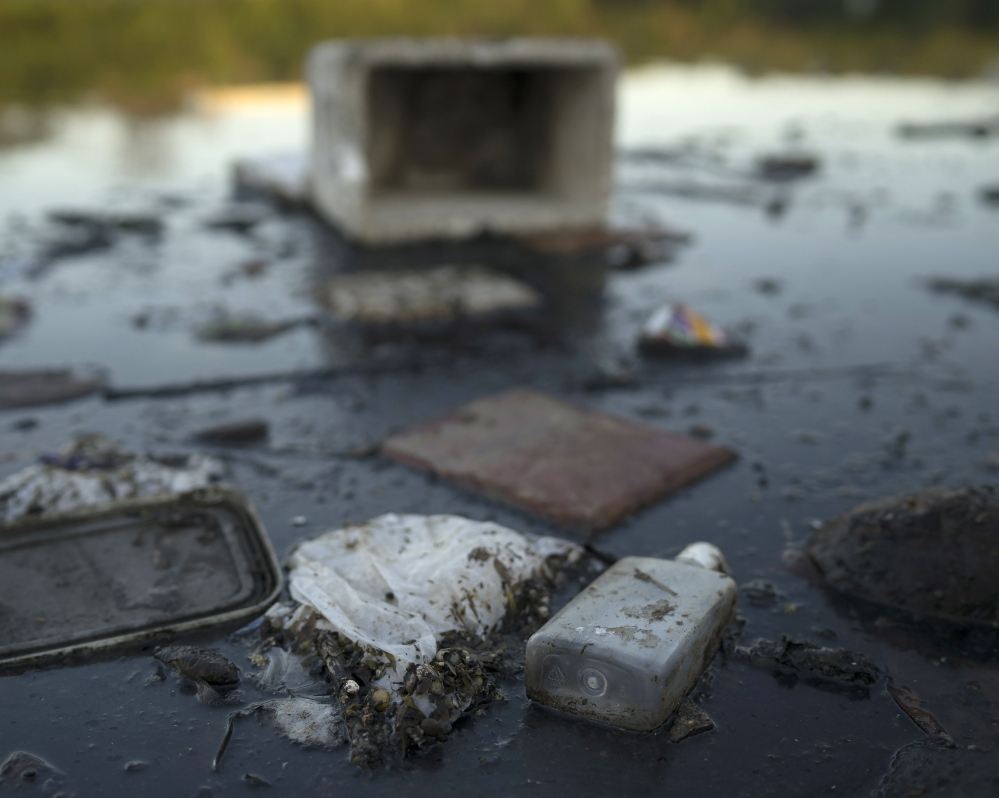RIO DE JANEIRO — The International Olympic Committee ruled out conducting viral tests of Rio de Janeiro’s sewage-laden waterways ahead of the 2016 games, a top official said Wednesday, despite an Associated Press study showing dangerously high levels of disease-causing viruses at all aquatic venues, with experts saying athletes are almost certain to be exposed to pathogens.
Speaking at a news conference dominated by questions about Rio’s sewage pollution problem, Olympic Games Executive Director Christophe Dubi said the IOC will be sticking to World Health Organization guidelines recommending only bacterial testing.
The AP’s independent analysis of water quality showed high levels of viruses and, in some cases, bacteria from human sewage in all of Rio’s Olympic water venues, including the Rodrigo de Freitas Lagoon, the Guanabara Bay and at Copacabana Beach.
In two separate emailed statements following the AP’s July 30 publication about its study, the World Health Organization said it was advising the International Olympic Committee “to widen the scientific base of indicators to include viruses.”
However, in an emailed statement Monday, the organization backpedaled and said that “WHO has not and will not issue an ‘official recommendation’ on viral testing.”
“WHO is very clear that bacterial testing is what should be followed,” said Dubi. “They have restated that bacterial testing is the measure that has to be used and will continue to be used by the authorities. … It is the best measure to be used.”
“We have also asked if with these measures and with this testing we can ensure the quality of the water for the athletes and preserving safety and the answer is yes,” he said.
Several water experts cited by the AP disagree – and have underscored there is little to no correlation between the amount of bacteria from sewage in water and the amount of viruses, which is what the AP study has so far found, with astronomical viral counts up to 1.7 million times what would be considered alarming on a southern California beach, yet with bacterial levels often within legal limitations.
Dubi dismissed reports that about a third of the members of a U.S. rowing team came down with stomach illness because of exposure to lagoon water at the World Junior Rowing Championships here last weekend, though the team doctor said she suspected it was due to pollution at the Olympic venue.
Nawal El Moutawakel, who heads the IOC’s inspection team that comes to Rio every six months to check on progress in the city’s preparations, also cast doubt on the U.S. team doctor and stressed her organization’s commitment to the athletes’ health and safety.
“The IOC puts on the highest priority the athletes, and our friends around this table are doing their utmost so that this issue of water quality is being heavily dealt with so the athletes can compete in secure and safe environments,” she said.
Copy the Story LinkSend questions/comments to the editors.



Success. Please wait for the page to reload. If the page does not reload within 5 seconds, please refresh the page.
Enter your email and password to access comments.
Hi, to comment on stories you must . This profile is in addition to your subscription and website login.
Already have a commenting profile? .
Invalid username/password.
Please check your email to confirm and complete your registration.
Only subscribers are eligible to post comments. Please subscribe or login first for digital access. Here’s why.
Use the form below to reset your password. When you've submitted your account email, we will send an email with a reset code.